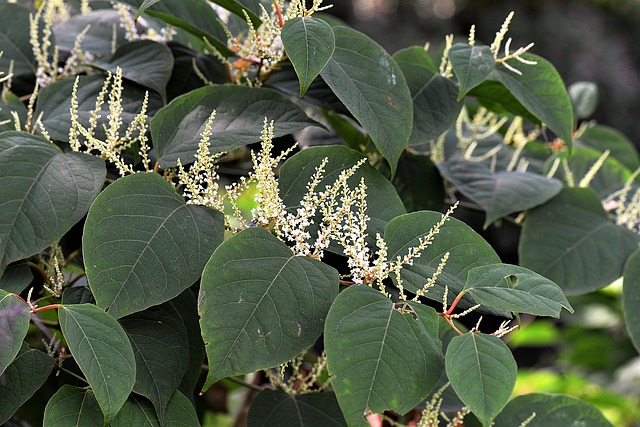
Japanese knotweed has a bad reputation, and deservedly so. This invasive plant grows fast, and it’s very difficult to get rid of.
However, it could be argued that the UK media have exaggerated the threat posed by Japanese knotweed. Some news reports would have you believe that the plant can bulldoze entire houses if left to grow unchecked—but while the plant can cause a number of issues for homeowners, actual structural damage is very rare.
In fact, a 2018 study said that 'Japanese knotweed should not be considered any more of a risk...than a range of other species of plant'.
The truth of the matter is this: Japanese knotweed will not directly damage your property, but it can harm your property’s value because the plant is so notorious and so difficult to tackle.
Like many other plants, Japanese knotweed follows the line of least resistance
If Japanese knotweed can’t grow in one direction, it will grow in another. This is one of the reasons why knotweed has become such a widespread problem.
But while Japanese knotweed can exploit pre-existing cracks and weaknesses in building structures in search of light and water, the plant cannot create cracks and weaknesses in an otherwise sound structure.
Usually, knotweed prefers to grow around obstacles rather than through them—in other words, it follows the line of least resistance. But the plant will push through cracks and holes if it has to, and this can result in structural damage.
Under pressure?
The above-ground canopy of Japanese knotweed can exert a lot of pressure on any walls and fences that surround the plant. This is due to the plant’s regenerative rhizomes, which have the ability to exploit weaknesses in built structures over a period of time. However, this exerted pressure will not necessarily cause any damage.
If you have an area of concrete that’s intact with no fissures, you can be confident that Japanese knotweed will not be able to penetrate it. And you don’t have to take our word for it: a scientific study by Fennell et al explains that it is ‘impossible for [Japanese knotweed] to grow through intact concrete’.
But don't relax just yet!
Whilst the above may help to ease your concerns about Japanese knotweed, it’s important to note that the plant can still reduce the value of your property, especially if Japanese knotweed is found in any amenity spaces (such as lawns, paths and driveways).

When putting your property up for sale, you must complete a TA6 form, which includes a question about Japanese knotweed.
If you are aware of a Japanese knotweed infestation on your property—past or present—you are required to declare this. And because the plant is so notorious and so difficult to eradicate, its presence can make buyers and lenders skittish to the point of negatively affecting your property’s value.
Trust the experts
Japanese knotweed thrives in areas such as South Wales and South West England, but don’t worry – here at Total Weed Control, we have the expertise to identify and control it. We know that identifying Japanese knotweed can be a difficult task; the plant’s growing cycle means its appearance can vary significantly depending on the season.
We provide a discreet and specialist service to identify suspected Japanese knotweed. Find out more by clicking the button below, or submit a photo.
Contact Us Today Submit a Photo
